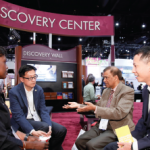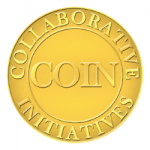
gerasimov_foto_174 / shutterstock.com
We all know words can be powerful. They often resonate with several levels of meaning, enriching our understanding and broadening our perspective. Take the word promise, for example. It implies responsibility, as in, “We promise to do it.” It is also imbued with hope, as in “This idea has great promise.” At the ACR we often speak about our brand promise: “We are here for you so you can be there for your patients.” To live up to this promise, we find we need other words to help us. One such word is collaboration—working with others to achieve a goal.
Collaboration is such an intrinsic part of providing patient care and advancing scientific research that we don’t question its importance in our work. Looking at collaboration from the organizational perspective, we know that for the ACR to support our members in the way we have promised, we must increasingly collaborate within our own organization and with others. If we are to serve as a trusted partner of those in our specialty dedicated to improving the lives of people suffering with rheumatic disease, the ACR can have no silos. Without embracing collaboration, how can the ACR truly fulfill its role as responsible citizen and steward of our specialty? Thus, we have taken the word collaboration and explicitly incorporated it into the ACR vocabulary, making it the express focus of one of our departments: Collaborative Initiatives, known as COIN.
So what does COIN do?
COIN serves as a hub where individual and organizational collaborators meet to provide new and continuing opportunities for professional development of ACR and ARP members at all levels of experience. COIN shares ACR expertise and resources with those most in need, and provides the ways and means for us to fulfill our role as stewards of our profession. How do we do this?
Supporting Children & Youth
Since 2016 COIN has concentrated on ensuring public schools have access to information on lupus. COIN, in collaboration with the Georgia Council on Lupus Education and Awareness (GCLEA), Big Bend Rural Health Network (BBHRN) in Florida and the National Association of Chronic Disease Directors (NACDD), has worked to conduct live and online education sessions on lupus for school nurses. To date, the education sessions have been attended by more than 300 school professionals.
Additionally, through these efforts, lupus has been included on the Fulton County, Ga., School District’s data tracking survey. In Florida, information on lupus has been added to the toolkits tab on the state’s school health webpage, and lupus has been added as a reported condition on the school health report that is completed by all 67 county school health programs annually.
To build on these efforts, COIN is now developing two plans for use by school nurses. The first is designed to support students with lupus in becoming independent and able to self-manage through the transition from pediatric to adult care. The other is a school nurse lupus care plan. Rheumatologists, pediatricians and rheumatology fellows at UT Southwestern and St. Louis University are working together to create these plans. Once completed, the ACR and its collaborators will pilot them in Georgia and Florida, and then disseminate them nationwide.
The second COIN project is focused on students, the Playbook Project. It is intended to raise awareness among college-age African-American women, a group disproportionately affected by lupus and in need of education about lupus. The activities included in the Playbook Project have already been implemented on nine college campuses.
Care for the Underserved
COIN’s Small Groups project is intended to improve access to quality care. COIN works with rural Area Health Education Centers (AHECs) to conduct live meetings of rheumatologists and rural healthcare providers to educate non-specialists and help build referral and consultation connections.
COIN is also exploring ways to help rheumatologists find volunteer opportunities that bring rheumatology care to underserved populations. Volunteers to Expand Rheumatology Access (VERA) was conceived by ACR members Liana Fraenkel, MD, MPH, and Robert H. Shmerling, MD. Along with a small volunteer task force, they are conducting a needs assessment to evaluate the sustainability of establishing an information clearinghouse intended to connect rheumatologists across the country with volunteer opportunities to provide services for underserved rheumatology patients with no other access to care.
Such volunteer opportunities offer rheumatology fellows a chance to gain exposure to underserved communities and give medical students and residents an opportunity to shadow experienced rheumatology providers.
Diversifying Clinical Trials
The Community Health Worker (CHW) Lupus Clinical Trial Training (LuCTT) program is one of two COIN projects designed to support recruitment and enrollment of minority populations affected by lupus into clinical trials. Minorities, especially African Americans and Latinos, are most affected by lupus, but they remain under-represented in clinical research. A diverse pool of research participants in clinical trials provides more robust evidence about the generalizability of new treatments which, in turn, may be valuable for addressing health disparities.
Led by ACR member Irene Blanco, MD, MS, LuCTT contains an online and in-person training course to increase CHWs’ knowledge and skills so they can better educate African-American and Latino communities on lupus clinical trials and support people with lupus navigating the clinical trial and healthcare systems.
COIN is working with three CHW organizations to achieve its goals in three medically underserved areas. These include the Bronx Community Health Network in the southeast Bronx, New York; Hispanic Health Initiatives in Apopka/Winter Garden, Florida; and Dia de la Mujer Latina in Harris County, Texas.
In addition, COIN’s Materials to Increase Minority Involvement in Clinical Trials (MIMICT) project, led by Allen Anandarajah, MD, MPH, and Saira Sheikh, MD, creates collaborative opportunities for clinical trial sites and healthcare providers. MIMICT delivers accurate, trusted, understandable information designed to enable non-specialty providers to help people with lupus make informed decisions about participation in clinical trials.
In Sum
By developing and implementing initiatives geared toward increasing health equality, creating models to expand rheumatology-related capacity in places of need and building bridges with local and national organizations, COIN lives up to its name as the collaborative force within ACR.
It is through collaboration that the ACR strives to deliver on its promise to you—in every sense of the word. I encourage you to contact any of the COIN working group members (see below) and to visit COIN’s webpage to learn more about the programs and resources available.
 Paula Marchetta, MD, MBA, is a rheumatologist in New York City and the CEO and managing partner of Concorde Medical Group, a multispecialty private group practice affiliated with NYU Langone Health. She teaches at NYU School of Medicine, where she is a clinical professor. Dr. Marchetta is the 82nd ACR president.
Paula Marchetta, MD, MBA, is a rheumatologist in New York City and the CEO and managing partner of Concorde Medical Group, a multispecialty private group practice affiliated with NYU Langone Health. She teaches at NYU School of Medicine, where she is a clinical professor. Dr. Marchetta is the 82nd ACR president.
COIN Working Group Members
S. Sam Lim, Emory University, Chair; David Daikh, UCSF, Board Liaison; Linda Ehrlich-Jones, Feinberg School of Medicine, ARP Representative; Candace Feldman, Brigham and Women’s Hospital, Boston; David Karp, UT Southwestern Medical Center; and Sheryl McCalla, Vice President, Strategic Initiatives, staff contact. For more information, email [email protected].


